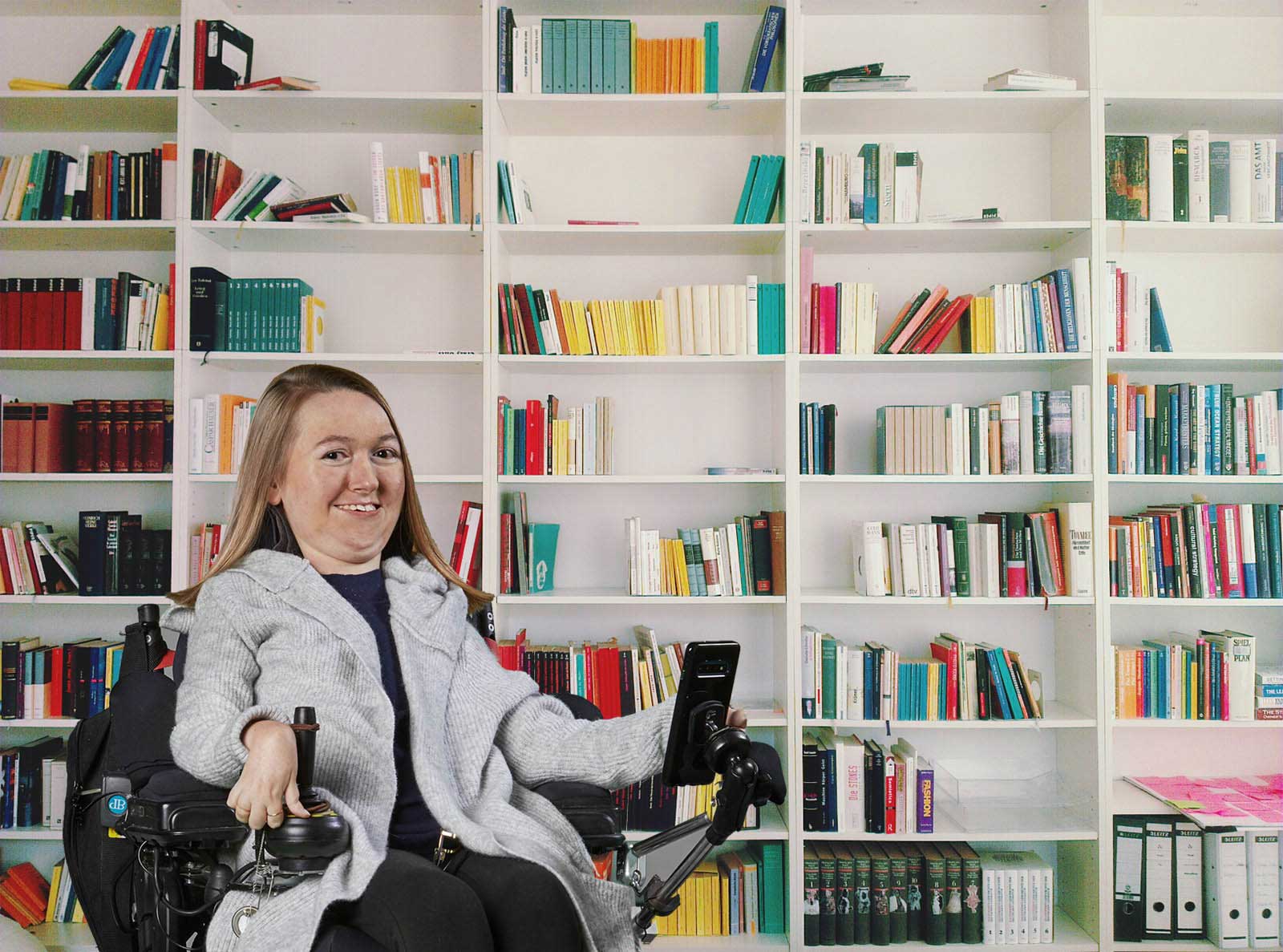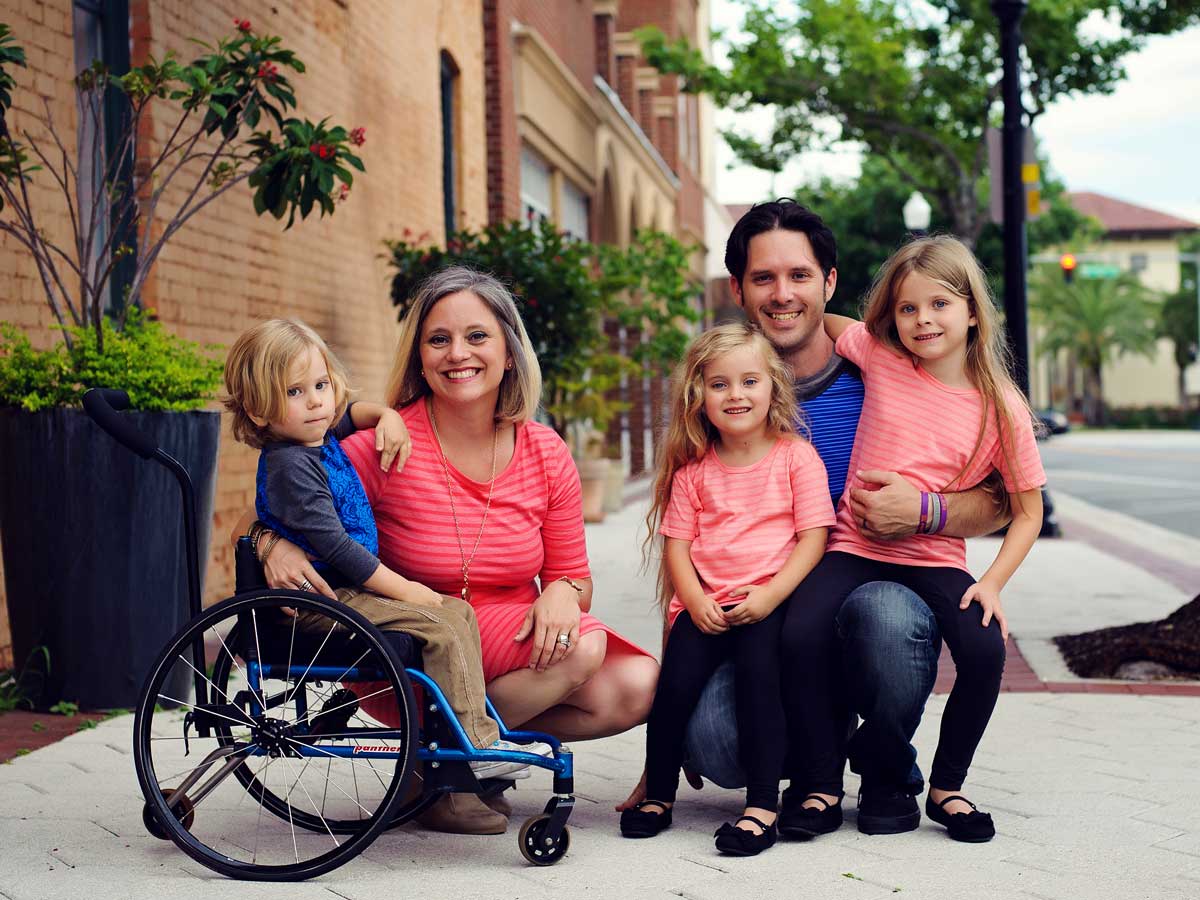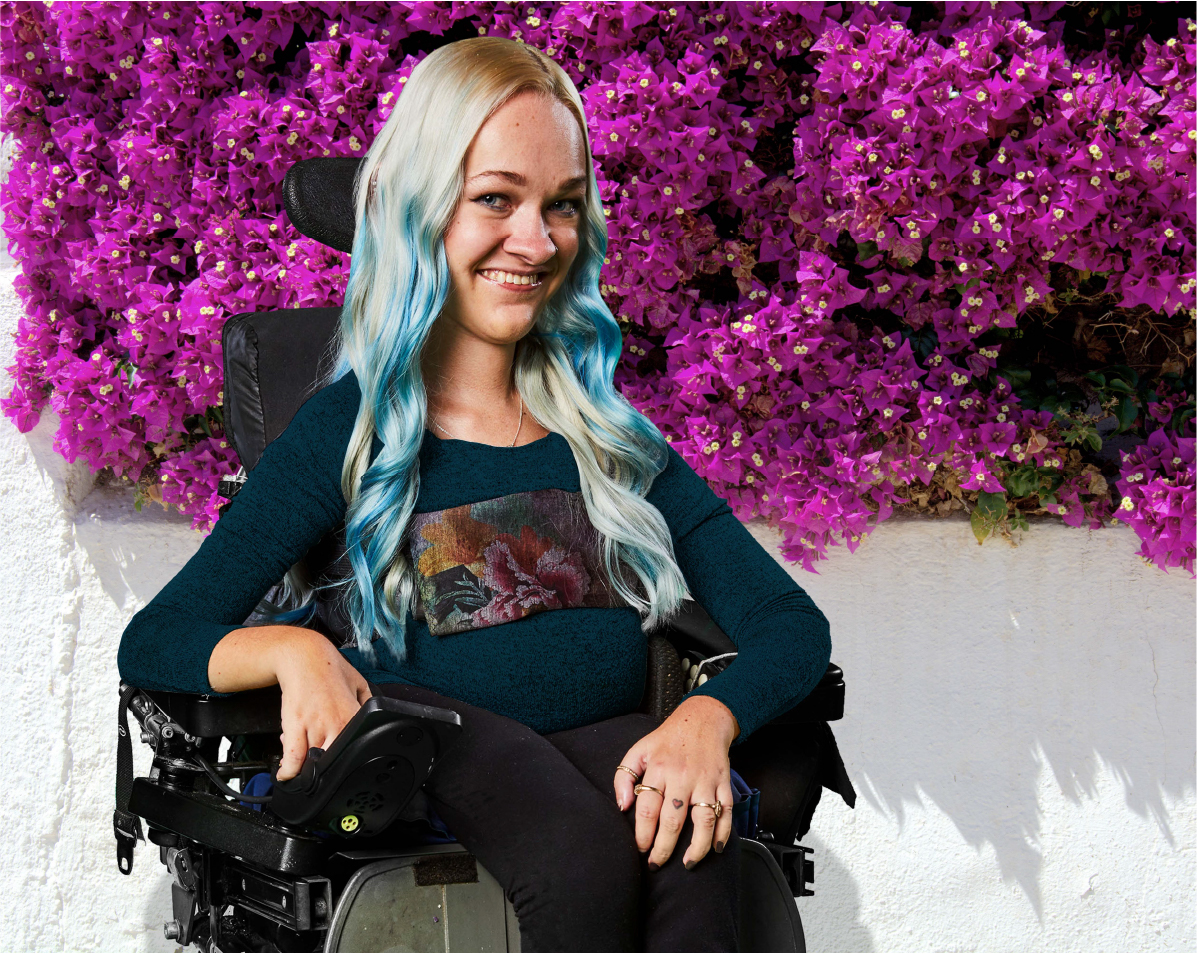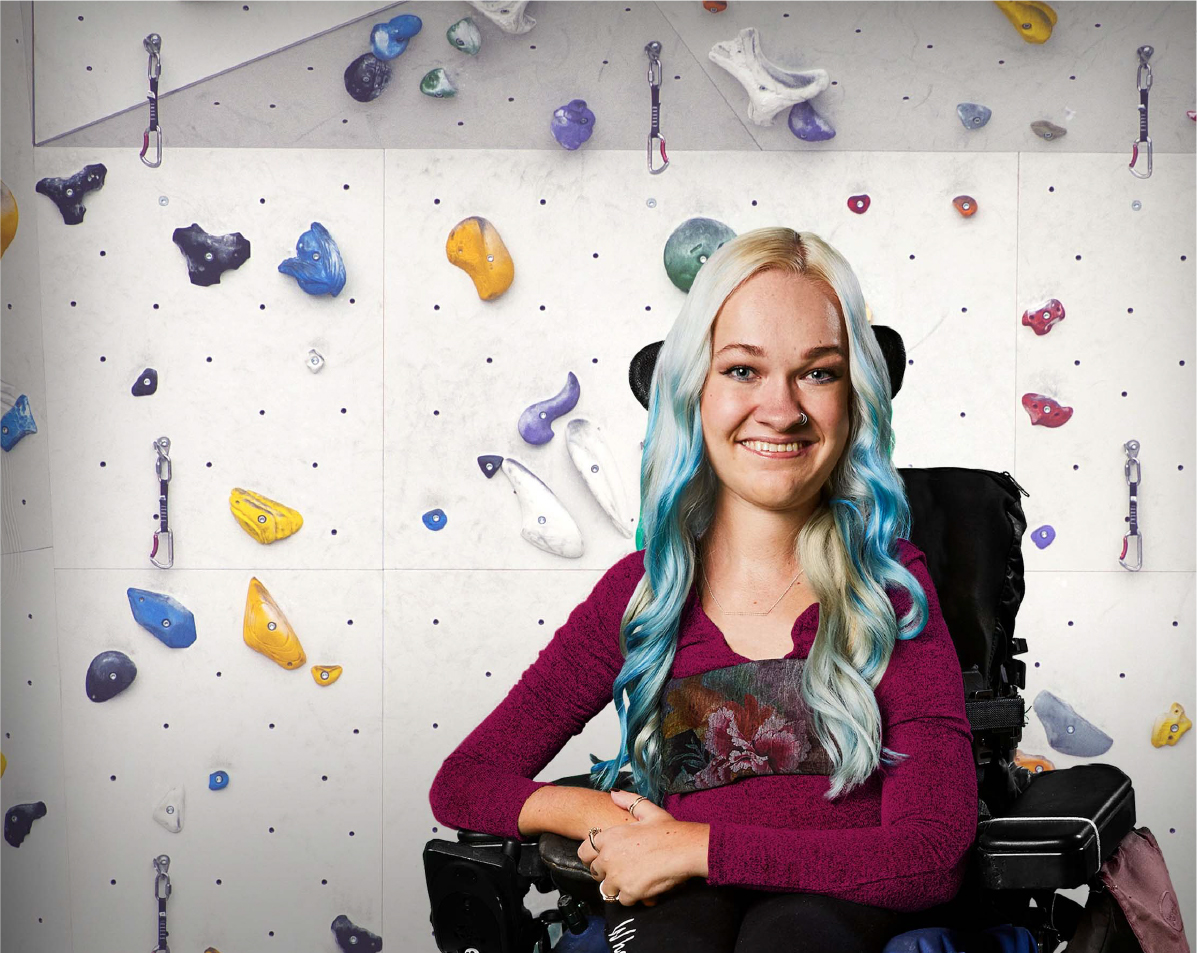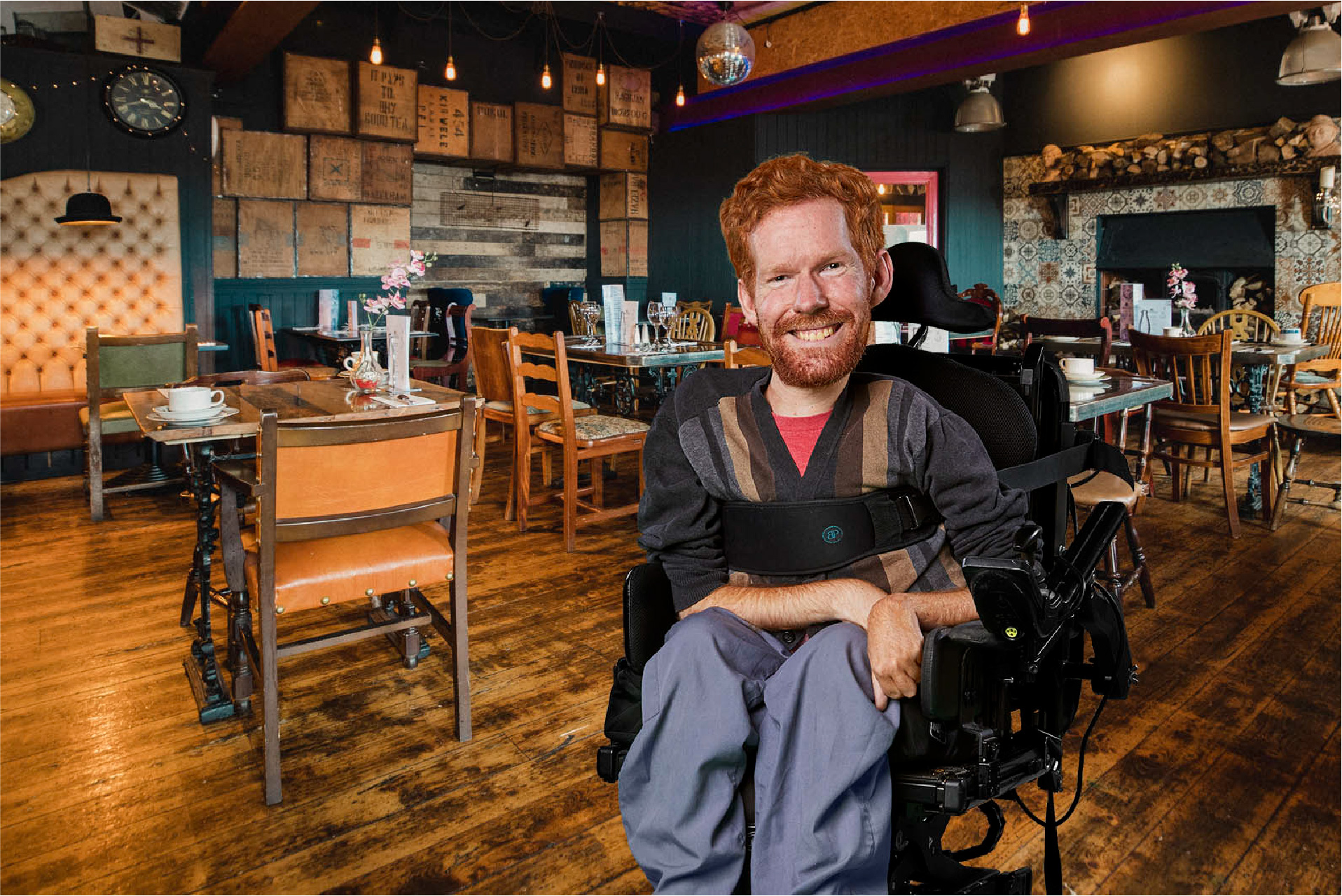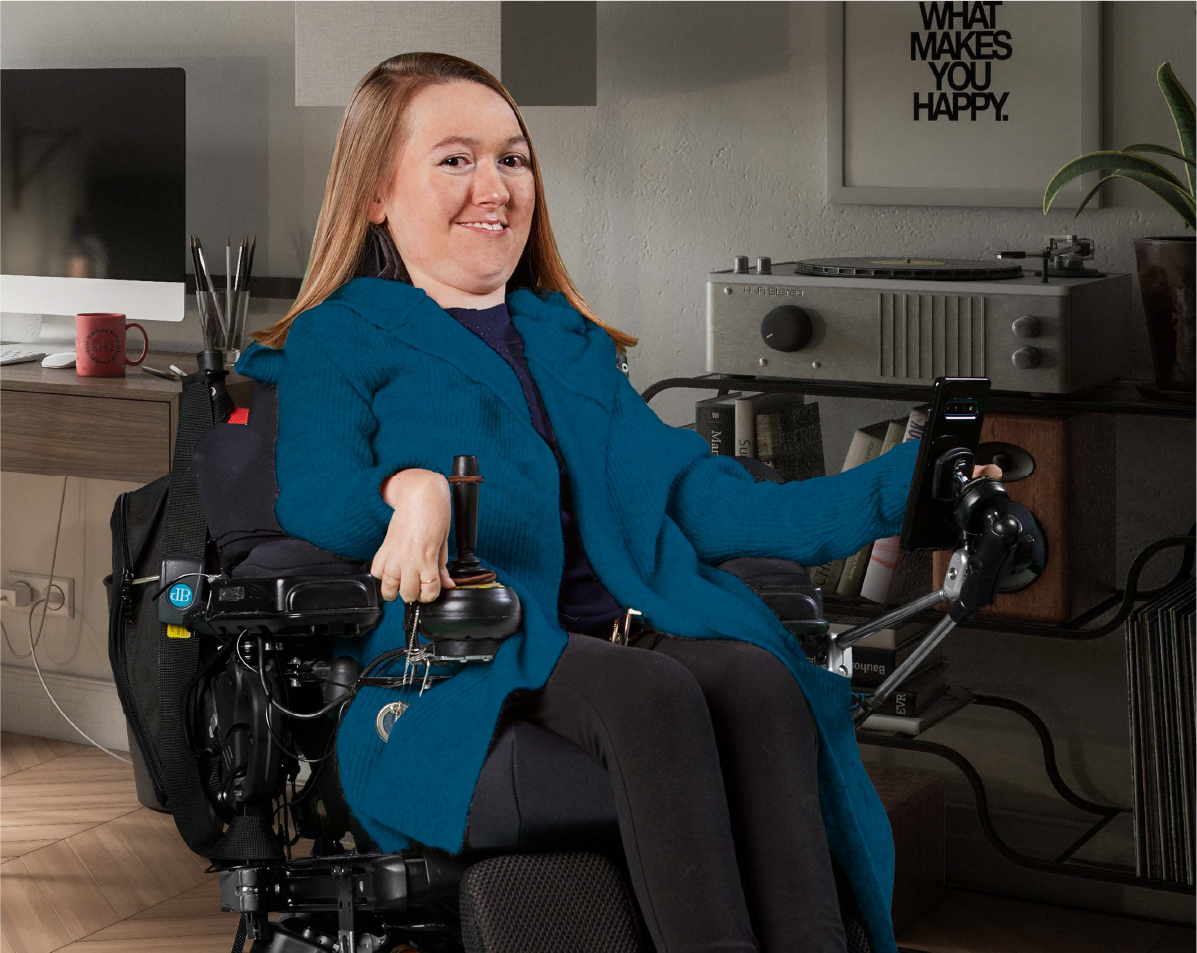Alex
You are worth it
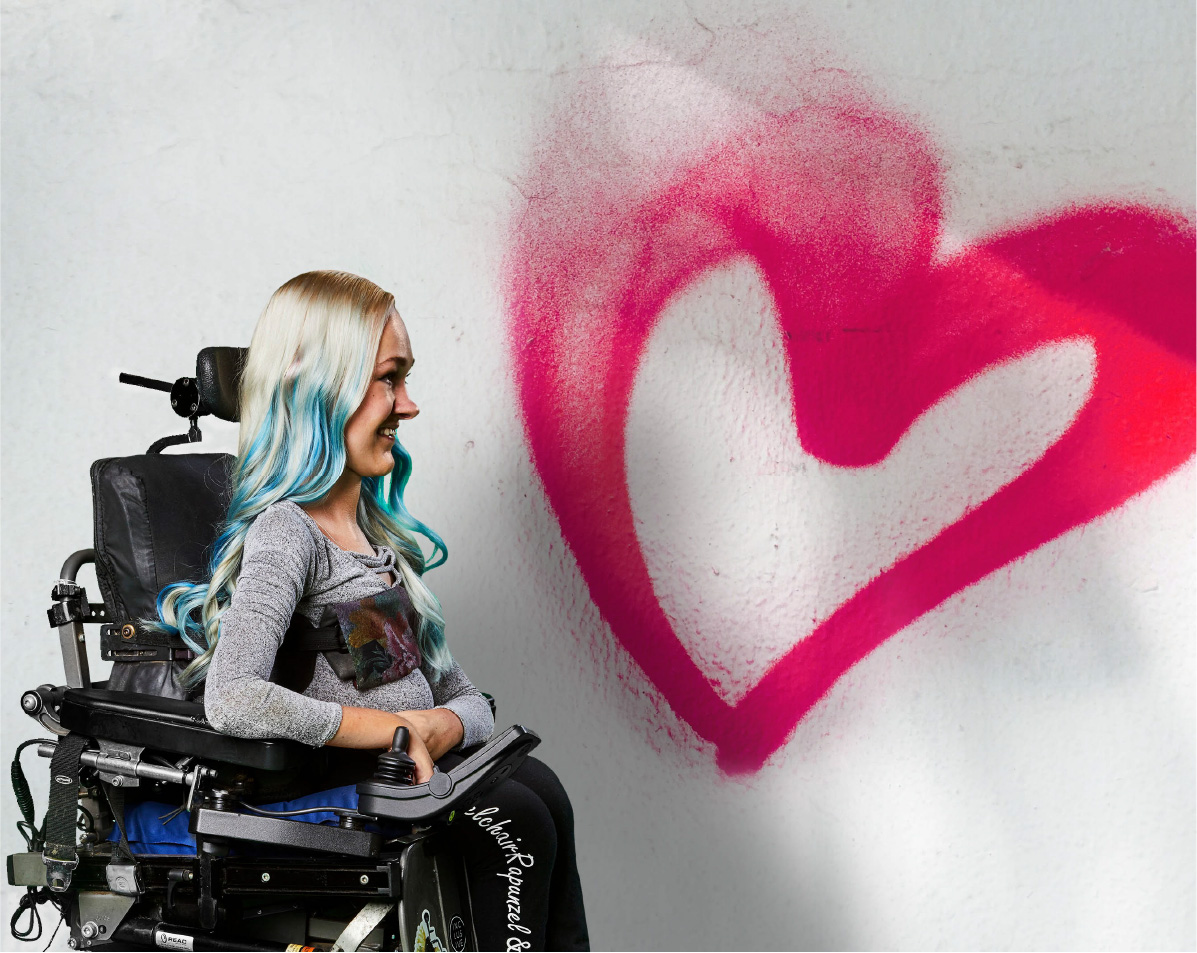
Finding your voice when you live in a world that tries to speak for you can be tricky. It took me years of life experience to realize I could use my voice to express my feelings as a disabled teen / adult living with SMA to cultivate understanding and friendships. When I found that voice, I never looked back.
I think everyone would be surprised to know that I wasn’t always as outspoken as I am now. Don’t get me wrong … I’ve always been a feisty and passionate person, but I didn’t start really expressing my feelings about my disability until I started publicly sharing my life on social media.
My strategy for creating a supportive environment when I was a teen versus now is vastly different. I think the main difference can be summed up in one thing we all (mostly) gain as we age: maturity.
My teen self was always in survival mode. Growing up with a disability is the most challenging thing I’ve ever experienced. We’re all just trying to fit in, be cool, and express our inner pent-up teen hormonal imbalances, which is just as complicated as it sounds. With that being said, I cultivated my own sense of inclusion and social life by letting my personality shine. I focused a lot on my hair, makeup, and fashion as well — because that’s what other teens could relate to. I was also a rebel. I found solace in my newly acquired disabled rebel high schooler status. When have you ever heard of that, a disabled rebel? I took pleasure in breaking stereotypes and expectations people had of me because I have SMA.
“My friends and I bonded because they saw me as something unexpected: a teen just trying to fit in like everyone else.”
Teen logic is quite interesting. Let’s break it down: disabled me + skipping class + wearing a rebel outfit = friends. Don’t ask… that’s just the way it works… or how it worked for me.
When meeting someone new, I do carry some of my teen strategies along in my “educate an abled” handbag whenever I need to break those out. A little swear word or winged eyeliner goes a long way with creating a socially accepting environment, believe it or not.
I still use fashion and makeup to let my inner personality shine on the outside. However, now that I’m an adult, I find that talking about internalized ableism and my disability with my support network makes me feel like those things matter. It also makes my support network more in tune with my experiences as a disabled adult, which helps them be able to support me that much more. I’m not as shy when talking about why I eat slower or why I douse my chicken nuggets in ranch so they can slide down my weak SMA throat easier. Those are things I would try to hide as a teen, to make my disability more palatable for others.
The abled-gaze (how able-bodied people view disability) is something I tried to appeal to my entire life. I tried to come off as less SMA than I really am. By doing that I was only hurting myself and distancing myself from who I am which made it hard to create a supportive network.
“By being who you truly are you let the people in your life one step closer to knowing how to support you best.”
Don’t try and become more palatable to please people around you. Being you is so much more freeing.
